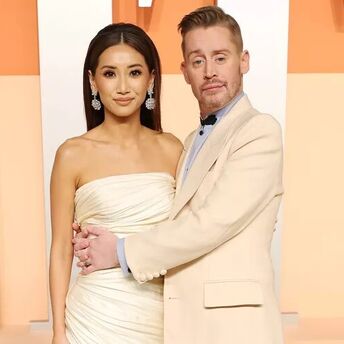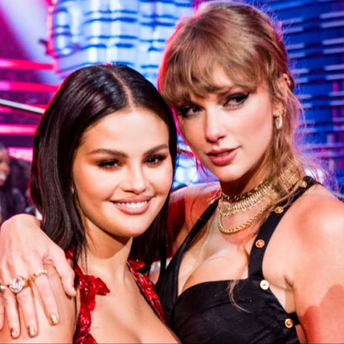An Interview With Desreta Jackson, Color Purple Actress

Actress Desreta Jackson was just in her preteens when she landed the role of young Celie in the Steven Spielberg film, The Color Purple. Jackson shared the role with Whoppi Goldberg, who played the older version of the character. Jackson moved to the USA at a young age with her family – she is originally from the British Virgin Islands.
Jackson is currently working on a line of hair products and recently wrote a book on the importance of hair. She also has a Production Company called, Desicon Pictures. You can learn more about her product line at myblacksilk.com and you can keep up with her projects at desretajackson.com.
How did you get the role of young Celie in The Color Purple?
I went to an open cattle call at Morningside high school. I was told that they were holding auditions all around the world for a major movie. I received a call at the last minute from my drama teacher. They had submitted my headshots for me.
An interesting story is the FBI almost took my headshots away. I answered an ad from an acting school that promised to help you put a resume together. Later, I discovered it was a scam and that the school overcharged us for the headshots. The day after I received my headshots from the school, the FBI came and shut the school down. They confiscated all the records and all the headshots.
Luckily, I got my head shots before the raid happened. When The Color Purple auditions came up my acting teacher called me and asked for headshots. I had them ready to go.
You were very young when you filmed The Color Purple, was the experience overwhelming for you at all?
No, not at all. The acting was my escape at the time. I was used to handling many things at a young age. When we first came to the US, I was only nine years old, we were homeless and my mother was pregnant. My mother would, at times, disappear for days. She would tell me not to open the hotel door for anyone. I was basically raising my little sister, a newborn, and I would juggle school too.
By the time I landed the role I was a caregiver for two babies, going to school and helping my mother stay out of what I call ‘daily drama.’ That is why the experience wasn’t overwhelming. Filming the role was like a beautiful vacation I never wanted to end.
Do you remember the conversations you had with Spielberg about the film and your character?
I did many on-screen auditions before being cast. Steven wanted me to make sure I brought all that character development I showed during the auditioning process to set. He didn’t want me to change anything.
Were you aware of who Spielberg was when you got the part? Had you watched E.T. or Indiana Jones already?
I had no idea who he was before The Color Purple. I had never gone to a movie theater before that. I just thought he was a chill and levelheaded director.
Did you have any discussions with Whoopi Goldberg about the character?
No. I shot all my scenes first. I hoped we would meet up later when she had to shoot her scenes, but it didn’t work out. Then, when the movie released, I learned many people thought the young Celie part I played was actually played by Whoopie Goldberg. I think it would be amazing if we could come together one day and share our experiences working on the film.
The Color Purple was an important film for a lot of reasons – when you look back at it now – how do you view it?
It gave me a legacy. When I first heard that the dress that I wore in the film was part of the Smithsonian Museum, I cried. I knew that my great grandkids would be able to visit the museum and see it. They can say, ‘My great-grandma played Celie, and that is the dress she wore.’ That’s pretty cool.
What kind of feedback do you get from people today about your role and the film?
They reach out and let me know how much my character changed their lives. Most felt like they could relate to Celie being molested and the childhood abuse. Because they were going through the same experience as Celie. Some people share how life-changing it was seeing a dark-skinned little girl on screen in a major film. It made them feel like they could become an actress. I am always surprised how widespread the gender, class and ethnicity of my fanbase is. The Color Purple has universal love.
There have been discussions, both when the film was released and now, that maybe the film should have been directed by a black filmmaker. Where do you stand on that subject today?
It was a phenomenal book, and we had a phenomenal cast. We had an extraordinary director and changing anything may have altered the history we made with the film.
When you look back at working with Steven Spielberg – what stands out to you all these years later?
Many things stand out, but my first beautiful memory was during my auditioning process for the role of Celie. I auditioned in a theater. The auditioning room was packed with girls. When I arrived, a lady approached me and said Mr. Spielberg wants to read with you. She took me into the theater, and I met him for the first time. He called me to center stage and told me we were going to do an improvised scene together. I remember putting my hands over my mouth when I would smile, and he asked me, ‘Why are you covering your smile like that?’ I explained that I thought Celie was too uncomfortable to be happy and smile. I wasn’t sure if he liked that or if I could add things like that to the character. But Steven told me to keep it. He liked it. After that I held nothing back.
What kind of things are you working on today?
I have a hair and skin beauty line called, BlackSilk. We are an all-natural, organic, or plant-based company where everything we sell are my formulations. I only create products to heal, grow, or protect. I’m excited about the brand because I just purchased a massive amount of acres and plan to develop every inch of it. I wrote a book about the importance of your hair and its connection to our universe. I share the science behind hair and how it is connected to the universe as a conductor to our energy and used to help navigate frequency for mind & health. The Black Hair Conspiracy was only on shelves for about three months when I was contacted by The Blair Cardwell African American Museum and Reference Library. My book is now part of a unique collection for reference on African American hair.
You can follow the actress on social media @Desretajackson.



















